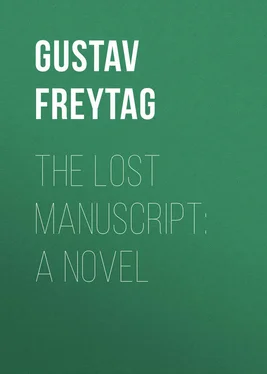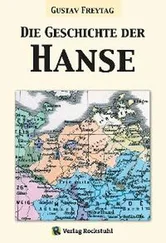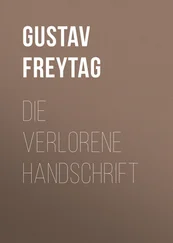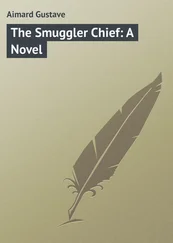Gustav Freytag - The Lost Manuscript - A Novel
Здесь есть возможность читать онлайн «Gustav Freytag - The Lost Manuscript - A Novel» — ознакомительный отрывок электронной книги совершенно бесплатно, а после прочтения отрывка купить полную версию. В некоторых случаях можно слушать аудио, скачать через торрент в формате fb2 и присутствует краткое содержание. Жанр: foreign_antique, foreign_prose, на английском языке. Описание произведения, (предисловие) а так же отзывы посетителей доступны на портале библиотеки ЛибКат.
- Название:The Lost Manuscript: A Novel
- Автор:
- Жанр:
- Год:неизвестен
- ISBN:нет данных
- Рейтинг книги:5 / 5. Голосов: 1
-
Избранное:Добавить в избранное
- Отзывы:
-
Ваша оценка:
- 100
- 1
- 2
- 3
- 4
- 5
The Lost Manuscript: A Novel: краткое содержание, описание и аннотация
Предлагаем к чтению аннотацию, описание, краткое содержание или предисловие (зависит от того, что написал сам автор книги «The Lost Manuscript: A Novel»). Если вы не нашли необходимую информацию о книге — напишите в комментариях, мы постараемся отыскать её.
The Lost Manuscript: A Novel — читать онлайн ознакомительный отрывок
Ниже представлен текст книги, разбитый по страницам. Система сохранения места последней прочитанной страницы, позволяет с удобством читать онлайн бесплатно книгу «The Lost Manuscript: A Novel», без необходимости каждый раз заново искать на чём Вы остановились. Поставьте закладку, и сможете в любой момент перейти на страницу, на которой закончили чтение.
Интервал:
Закладка:
Ilse shook her head and cast down her eyes.
"And the Roman whose lost book brought you to us, and of which you have been talking to-day-is he interesting to you because he looked upon the world in the cheerful light that you do?"
"No," answered the Professor, "it is just the reverse that impresses one in his work. His serious mind was never borne aloft by joyful confidence. The fate of his nation, the future of men, lay like a dark impenetrable riddle heavily upon his soul. In the past he saw a better time, freer government, stronger men, purer morals. In his own people and his own state he saw decadence and dissolution, which even good rulers no longer could retard. It is affecting to see how that high-minded, thoughtful man struggled in doubt. For he doubted whether the horrible fate of millions was the punishment of the Deity or the consequence that no God cared for the lot of mortals. Forebodingly and ironically he contemplates the history of individuals. To him the course of wisdom seems to be to bear the inevitable silently and patiently. When, even for a moment, a brief smile curls his lips, one perceives that he is looking into a hopeless desert; one can imagine fear visible in his eyes, and the rigid expression which remains on one who has been shaken to the innermost core by deadly horrors."
"That is sad," exclaimed Ilse.
"Yes, it is fearful. And it is difficult to understand how any one could endure life, burdened by such despair. The joyful satisfaction of belonging to a nation of growing vigor was not then the lot of either heathen or Christian. It is the highest and most indestructible happiness of man to have confidence in that which exists, and to look with hope to the future. And such is our life now. Much that is weak, corrupt, and perishable surrounds us. But with it all there is growing up an endless abundance of youthful vigor. The root and the trunk of our popular life are sound. Everywhere do we find sincerity in family-life, respect for morals and law, sturdy and solid labor, everywhere energetic activity. In many thousands we find the consciousness that they are increasing the national strength, and in millions that are still far behind them the feeling that they also are laboring to contribute to our civilization. This is our pleasure and glory in modern times, and helps to make us valiant and proud. We well know, indeed, that the joyful feeling of this possession may also be saddened; for temporary disturbances come to every nation in the course of its development. But its progress and prosperity of thriving cannot be thwarted, nor its career hindered, so long as these securities of power and soundness exist. It is this that gives happiness to him whose vocation it is to investigate the past, for he looks down from the salubrious air of the heights into the darkness beneath him."
Ilse gazed on him with wonder and admiration, but he bent over the sheaves which were between them and continued with enthusiasm:
"Each one of us derives the judgment and habit of mind with which he regards the great relations of the world, from the sphere of his own personal experience. Look about you. Here at the laughing summer landscape, yonder at the busy workingmen, and then at that which lies nearest your heart-at your own home and the circle in which you have grown to womanhood. How gentle the light, how warm the hearts, how wise and good and true the minds that surround you! And think what an inestimable gain it is for me , to see this, and to enjoy it-enjoy it by your side. And when, poring over my books, I hereafter shall vividly feel how valiant and noble, how sturdy and true is the life of my countrymen about me, I shall evermore in my inmost heart pay, for that, a tribute of thankfulness to you."
He stretched out his hand across the sheaves; Ilse seized it, and clasped it between hers. A warm tear fell upon it. She looked at him with her moistened eyes, while a world of happiness lay in her countenance. Gradually a bright glow suffused her cheeks, she rose, and a look full of devoted tenderness fell upon him; then she walked hastily away from him adown the meadow.
The Professor remained leaning against the sheaves. The meadow-larks on the tips of the ears of grain over his head warbled joyfully. He pressed his cheek against the stack which half concealed him; thus, in happy forgetfulness, he watched the girl descending toward the distant laborers.
When he raised his eyes his friend was standing by him; he beheld a countenance which quivered with inward sympathy, and heard the gentle question:
"What will come of it?"
"Husband and wife," said the Professor decidedly; he pressed his friend's hands, and strode across the fields to the songs of the larks which greeted him from every sheaf.
Fritz was alone. The word had been spoken. A new and awful fate overshadowed the life of his friend. So this was to be the end of it? Thusnelda, instead of Tacitus! Fritz felt alas! that the social custom of marriage might be a very venerable institution. It was inevitable that most men pass through the uprooting struggle which is the consequence of a change in the mutual relations of life. He could not think of his friend amid his books, with his colleagues, and this woman. He felt painfully that his relation to the Professor must be changed by it. But he did not think long of himself, but anxiously worried about his rash friend; and not less about her who had so dangerously impressed the soul of the other. The faithful rash friend looked angrily upon the surrounding stubble and straw, and he clenched his fists against the deceased Bachhuber; against the valley of Rossau; nay, even against the immediate cause of this mischievous confusion-against the manuscript of Tacitus.
CHAPTER IX .
ILSE
Since the death of her mother Ilse had lived an unvaried home life. Though then scarcely grown up, she had taken charge of the household. Spring and autumn came and went. One year rolled over her head like another. Her father and sisters, the estate, the laborers, and the poor of the valley-these formed her life. More than once a suitor, a sturdy, worthy proprietor of the neighborhood, had asked her hand in marriage. But she felt contented with her home, and she knew that her father wished her to remain with him. In the evening, when the active man rested on the sofa, and the children were sent to bed she sat silently by him with her embroidery, or talked over the small occurrences of the day-the illness of a laborer, the damage done by a hail storm or the name of the new milch cow. It was a lonely country. Much of it was woodland. Most of the estates were small. There were no rich neighbors. And the father, who had worked his way by his energy until he became an opulent man, had no inclination for society life, nor had his daughter. On Sunday the Pastor came to dinner, and then the father's farm-inspectors remained and related the little gossip of the neighborhood over their coffee; the children, who, during the week, were under the charge of a tutor, amused themselves in the garden and fields. When Ilse had a leisure hour she seated herself in her own little sitting-room with a book out of her father's small library-a novel by Walter Scott, a tale by Hauff, or a volume of Schiller.
But now a profusion of thoughts, images, and feeling had been awakened in her mind by this stranger. Much that she had hitherto looked upon with indifference in the outer world now became interesting to her. Like fire-works which unexpectedly shoot up, illuminating particular spots in the landscape with their colored light, his conversation threw a fascinating light, now here and now there, on a life that was strange to her. When he spoke, when his words, copious and choice, flowed from his innermost heart-she bent her head as in a dream, then fixed her eyes on his face. She felt a respect commingled with fear for a human mind that soared so loftily and firmly above the earth. He spoke of the past as intimately as of the present; he knew how to explain the secret thoughts of men who had lived a thousand years ago. Ah! she felt the glory and greatness of human learning to be the merit and greatness of the man who sat opposite to her. The intellectual labor of the centuries appeared to her as a supernatural being which proclaimed from a human mouth things unheard of in her home.
Читать дальшеИнтервал:
Закладка:
Похожие книги на «The Lost Manuscript: A Novel»
Представляем Вашему вниманию похожие книги на «The Lost Manuscript: A Novel» списком для выбора. Мы отобрали схожую по названию и смыслу литературу в надежде предоставить читателям больше вариантов отыскать новые, интересные, ещё непрочитанные произведения.
Обсуждение, отзывы о книге «The Lost Manuscript: A Novel» и просто собственные мнения читателей. Оставьте ваши комментарии, напишите, что Вы думаете о произведении, его смысле или главных героях. Укажите что конкретно понравилось, а что нет, и почему Вы так считаете.












